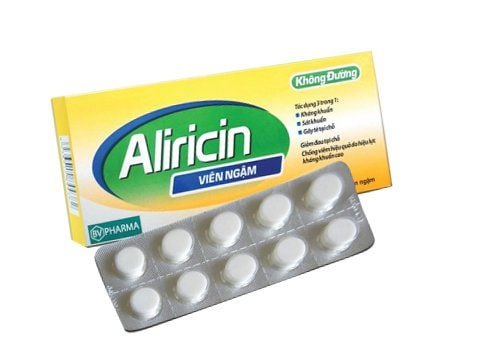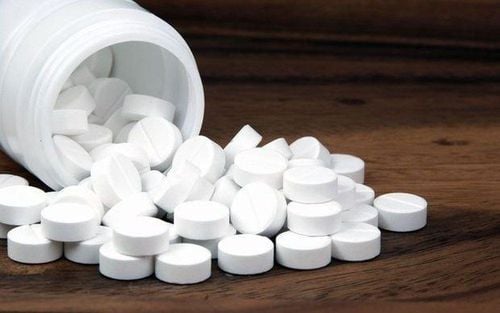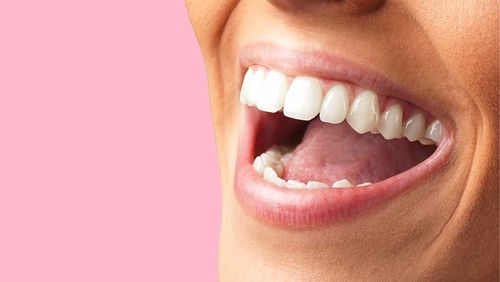This is an automatically translated article.
Aging is a part of nature that no one can avoid. As age increases, the risk of diseases increases, especially dental problems. Without proper oral care, older adults may experience conditions such as tooth decay, enamel wear, or gum disease.
1. How do teeth change with age?
Our teeth are really amazingly strong. Research has shown that molars can withstand pressure up to 200 pounds. However, over time, the hard outer enamel of our teeth can wear down as we continuously chew food. In addition, tooth surfaces can also be affected when exposed to highly acidic foods, such as carbonated drinks or citrus fruits, which dissolve the enamel that protects the teeth.
Once your enamel is weakened, it sets the stage for the development of serious dental problems. Just a crack or break in the outer surface of a tooth can leave the delicate pulp tissues vulnerable to irritation and infection. If the nerves at the core of your teeth lose sensitivity with age, dental problems can develop before you notice any symptoms or pain. In cases where an infection develops in the tooth, you may need to undergo root canal surgery or even lose the tooth altogether.
Many studies have shown that the rate of tooth decay in people over 65 years old today is higher than the rate of tooth decay in young people. Tooth decay in the elderly often occurs mainly around the neck of the tooth, where it meets the gum line. Gum tissue naturally recedes with age, leaving the soft tissue of the tooth's roots exposed.
Although there is not much you can do to prevent the natural wear and tear of the tooth surface, some measures such as brushing, flossing, and regular oral hygiene at the dentist's office can help. can help prevent this condition to some extent for all ages. Currently, toothpaste and mouthwash products contain fluoride, a substance that helps rebuild the mineral crystals that make up tooth enamel, and inhibits bacteria-filled plaque from sticking to teeth.
MORE: How often should I go to the dentist?
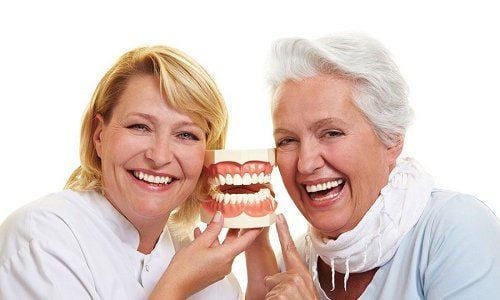
Chăm sóc răng cho người già là điều vô cùng cần thiết, đem lại cuộc sống chất lượng
2. Some ways to take care of the elderly's teeth
To prevent tooth decay and maintain oral health due to aging, older adults can follow some of the following measures, including:
2.1. Keeping gums healthy
Plaques full of bacteria always form on your teeth. If they are not removed soon, these plaques will cause pain, swelling and bleeding in the gums. It can even lead to infection and damage to the bone underneath. This is also the main cause of gum disease, also known as periodontitis. If you don't treat the disease early, it can damage your gums and teeth, forcing you to have your teeth extracted.
Some common signs of gum disease often include:
Gums that recede or recede from teeth Bleeding when you brush Bad breath Loose teeth The best way to keep gums from changing shape is thorough dental care. You should brush your teeth twice a day and floss every other day. In addition, you should also visit your dentist regularly to have your teeth checked and cleaned. If you have a habit of smoking, try to quit as soon as possible.
2.2. Don't let your mouth dry
Saliva has the effect of cleaning teeth and protecting teeth from decay. But as you age, your mouth tends to become drier and increases your chances of tooth decay. Certain medications you are taking can be the main cause of your dry mouth. To prevent this, older people should try to drink water more often and should hold water in their mouths for a few seconds before swallowing them. In addition, you can also suck on candy or chew sugar-free gum to increase saliva production, helping to minimize dry mouth.
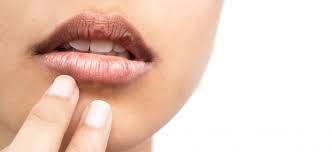
Khô miệng là một trong những nguyên nhân gây sâu răng
2.3. Take care of sensitive teeth
Enamel wear, tooth decay and gum problems can all make your teeth more sensitive. You may feel a sharp pain when drinking hot or cold drinks, even if you brush your teeth too hard. So, taking good care of your teeth is the best prevention. You should brush, floss, and see your dentist regularly. If you have sensitive teeth, your dentist can recommend some suitable toothpaste or treatment at the clinic to help you feel more comfortable.
MORE: 8 ways to keep your mouth clean and healthy
2.4. Limit your intake of acidic foods
Most carbonated drinks and citrus juices contain acids. In addition, when you consume sugary and starchy foods, your mouth can produce acid – a substance that easily erodes tooth enamel.
After drinking acidic drinks, you can drink more milk to "reduce" the acid. Accordingly, you should only eat sugary and starchy foods in the main meal. This is when your mouth produces the most saliva to wash away the acid.
2.6. Prevent cancer
People who are older have a higher risk of developing cancers of the mouth, throat, tongue or lips. The best way to prevent this is to stop smoking and drink alcohol in moderation. In addition, you should also use lip balm along with sunscreen whenever you go out.
Painful symptoms are not an early sign of disease, so you should see your dentist regularly to check your oral health. Finding and detecting the disease early will help you achieve high treatment efficiency. Some warning signs of dental problems include sores, red or white patches, and any long-term changes in your mouth.
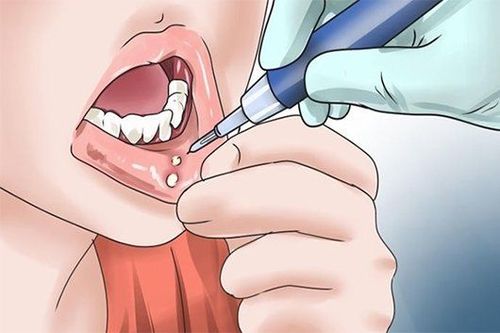
Người cao tuổi tăng nguy cơ mắc bệnh ung thư miệng
3. How to age healthy?
Physical activity can have many benefits for your health throughout your life. Even as you age, increasing your level of physical activity can improve your life expectancy and increase your years without disease or disability. Physical activity can provide some of the following benefits:
Increases longevity Maintains appetite Protects and protects against heart disease, stroke, diabetes, depression, dementia and some cancer Reduces stiffness and pain from arthritis Reduces bone loss and strengthens muscles, reduces risk of falls and fractures Improves mood Both young and old need less physical activity 150 minutes per week, each session lasting 10 minutes or more. The best way to achieve this is to do 30 minutes of each exercise and maintain it for 5 days per week.
Physical activity doesn't have to be strenuous to gain health benefits, it's important that you include it in your regular routine. Even small changes to your day can help your health, like taking the stairs instead of the elevator or going for a walk near your house. In general, the more physically active you are, the greater the benefits. However, if you haven't been very active before, you should start gradually and increase the amount of activity to minimize the risk of injury.
Please dial HOTLINE for more information or register for an appointment HERE. Download MyVinmec app to make appointments faster and to manage your bookings easily.
References: health.harvard.edu, nutrition.org.uk, webmd.com






